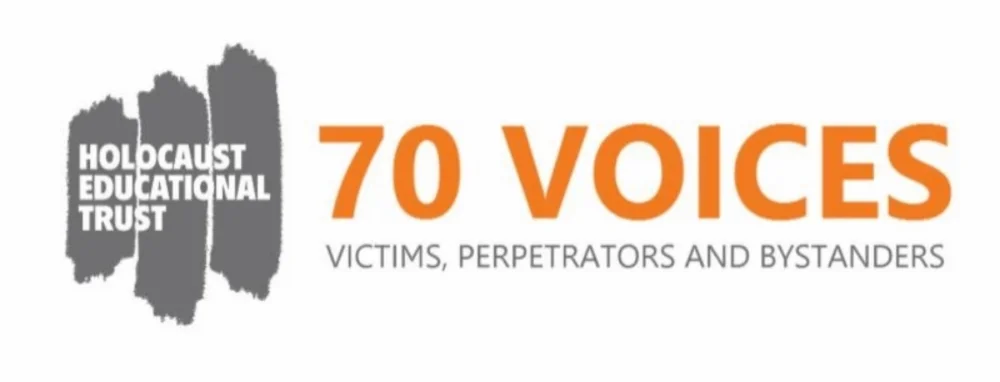The Bergen-Belsen Displaced Persons camp became a centre for the renewal of Jewish life after the Holocaust. The thousands of survivors who remained in the DP camp created a system of political self-representation which pushed the British occupying forces to listen to their concerns. They also established a flourishing social and cultural life, including a theatre troupe, which was organised by Samy Feder, a survivor from Poland.
I was deeply moved when several Jewish girls came to see me and begged me with tears in their eyes to let them join the troupe. They could speak no Yiddish at all, but they were stage struck. When I told them that we were going to produce our plays in Yiddish, they promised to learn Yiddish in a very short time...
How could I send them back?
So we started by teaching the girls Yiddish while rehearsing at the same time. These were no ordinary rehearsals.
We had no book, no piano, no musical scores. But we could not wait for supplies from outside. There was a need to play, and an eager public...
Our first show took place three months after liberation. Despite all the difficulties and improvisations, it was all right on the night, as it always is with good actors...
I have never played to such a grateful audience. They clapped and laughed and cried. When we gave, as our last item, the famous song ‘Think not you travel to despair again,’ the thousand people in the hall rose to their feet and sang with us. Then Hatikvah [now the Israeli national anthem]. Never was Hatikvah rendered with such verve as on that first night.
The theatre was only one manifestation of the extraordinary creativity which existed in the Bergen-Belsen DP camp. Most of the survivors eventually found homes overseas, primarily in Israel, although the last survivor only left Belsen in September 1950.
Image: membership card for the Jewish theatre in Bergen-Belsen Displaced Persons camp; United States Holocaust Memorial Museum, courtesy of Norbert Wollheim
Testimony: Irgun Sheerit Hapleita Me'Haezor Habriti, Belsen (Irgun Sheerit Hapleita Me'Haezor Habriti)

